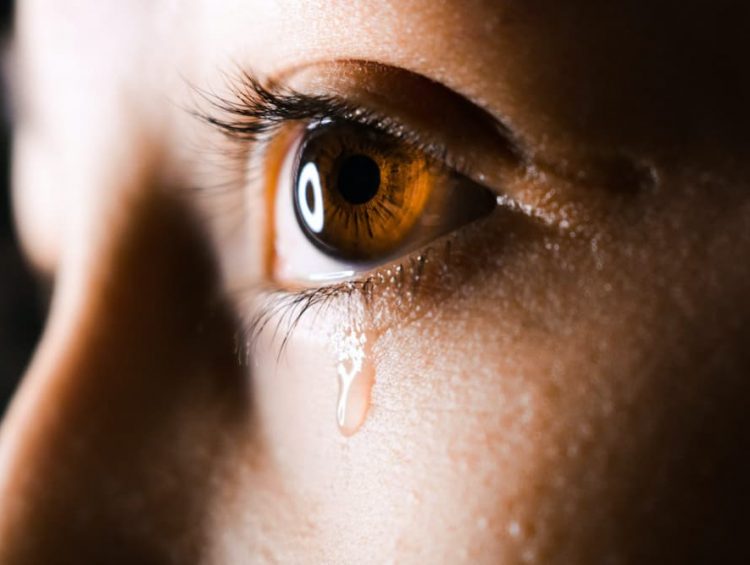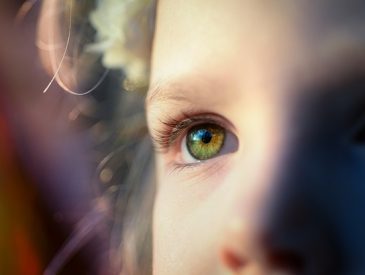Why do my eyes water when I yawn? Your facial muscles contract and your eyes get all scrunched up when you yawn, which may be the reason why your eyes water. It may be a sign of dry eyes, allergies, or other conditions that affect tear production if your eyes frequently water when you yawn.
We all yawn, but it is an involuntary motion with an unclear purpose. Sometimes, nothing feels better than a good yawn. On other occasions, we attempt to smother it or conceal it. And when some of us yawn, we cry.
Let’s examine why you yawn and why it makes your eyes water, whether this is a problem, and what you should do next.
Table of Contents
Yawning & Watery Eyes Causes
Tears are secreted by the lacrimal glands, which help to keep the eyes moist. Under the eyebrows, they are located just above the eyes.
A person’s yawn may exert pressure on the lacrimal glands, depending on how hard they yawn or how they stretch their other facial muscles. They may cry more as a result of this.
As an example, after spending the entire day staring at a computer screen, people often yawn when they are tired. It’s possible that this fatigue will make your eyes tired as well. Especially when yawning puts pressure on the lacrimal glands, the dryness of tired eyes may cause them to feel watery and cause them to cry.
Many different animals yawn as well, and babies start yawning even before they are born. The question of why people yawn has not yet been satisfactorily resolved by researchers, despite the fact that almost everyone yawns. Some theories suggest they occur for the following reasons:
- Yawns may be a reflex to help a person become more alert because they are more frequent when people are tired.
- Before stressful events, like athletic competitions, people may yawn more as a calming signal, according to some research. This might enhance calmness. Furthermore, some animals yawn more frequently when under stress.
- Yawns may serve as a means of social bonding because they are contagious. When a family member or other close friend yawns, a person is more likely to yawn than when a complete stranger does. As a result, yawning could indicate social relationships.
- At higher altitudes where blockages of the eustachian tubes can result in painful pressure, people tend to yawn more, indicating that one function of yawning is to clear them.
- To increase oxygen levels: Since yawning typically involves taking a deep breath, some scientists have hypothesized that yawning may aid in increasing oxygen levels. Nevertheless, one study found that increasing carbon dioxide intake did not increase frequency of yawning, suggesting that the goal of yawning is not to increase oxygen intake.

Other Yawning Effects
Not all of the side effects of yawning involve tears. Some other common effects include:
- Eustachian tubes that need to be cleared: Eustachian tubes link the throat to the middle ear. These tubes can be opened by yawning, which relieves pressure and occasionally even causes fluid to drain from them. When a person is at a high altitude, this may help with pressure or earaches.
- Yawns are contagious; people are more likely to yawn when they see someone else yawn, even if it’s on camera. This kind of empathy exists. Yawns may be less contagious in people with illnesses that affect empathy or social behavior, according to some research.
- When someone yawns, they typically close their eyes, if only for a split second.
- Yawns can stretch the jaw and facial muscles, which may help to ease any tension or pain in the face. Some people also experience discomfort or a clicking in their jaws when they yawn. This could mean that the temporomandibular joint (TMJ) isn’t functioning properly.
Other Daily Things That May Cause Watery Eyes
The body may try to moisturize the eyes if they become too dry, which can cause them to water. Some potential causes of dry eye include:
- eye surgery
- certain medications, including antihistamines, over-the-counter pain relievers, hormone therapy, and antidepressants
- skin conditions such as eczema and blepharitis
- issues with the glands that lubricate the eyes
- fatigue
- exposure to wind, dry air, or chemical irritants such as cigarette smoke
- allergies
- spending extended times in front of computer screens
Some medical conditions may also cause watery eyes, including:
- glaucoma
- infections and injuries of the eye
- cataracts
A detached retina is a medical emergency requiring immediate treatment if a person has trouble seeing or encounters light flashes.
Do Everyone’s Eyes Water When They Yawn?
No, as some individuals yawn without shedding a single tear.
Dry eyes can make it more difficult to produce any tears at all, just as they can leave you dripping with tears. You might not cry when you yawn if your overall tear production is lower.
How frequently people cry when they yawn is not well known from research. It’s a safe bet that almost everyone cries occasionally, but not always. Our current environment as well as aspects of our physical condition may play a role.
Is My Tearing Up During a Yawn Excessive?
Since everyone is unique, what may be completely normal for you may be completely abnormal for someone else. You might think it’s excessive if it makes you yawn frequently, cry more often than usual, or feel extremely uncomfortable.
A visit to an ophthalmologist is advised at that time. Medical professionals who specialize in treating eye conditions like dry eye syndrome include ophthalmologists.
A primary care physician can assist in figuring out whether a sleep disorder or another health problem is the cause of your excessive yawning if you believe it to be so.

Does Everyone Cry While Yawning?
No, a lot of people yawn without even blinking an eye. Dry eyes can make you more susceptible to watery eyes, as was previously mentioned. However, they can also make producing tears difficult. It’s possible to yawn without crying if you don’t typically cry often.
There hasn’t been a conclusive study to determine how many people cry while yawning. It’s a safe bet to assume that almost everyone cries occasionally while yawning, but not always. Additionally, there are other elements like our physical condition and environment that are very important.
How To Stop My Eyes from Watering When I Yawn?
Your eyes probably won’t stop watering when you yawn, and there is probably nothing you can do about it. It might help to receive treatment for allergies, dry eye syndrome, or other eye conditions.
You can’t stop yourself from yawning either, but you might be able to reduce it by getting enough rest and getting up and moving around when you’re bored or feeling sluggish.
The Tear to Burn While Yawning: Is It Normal?
When you yawn or at any other time, it’s uncommon for tears to start to burn. The reason behind burning or stinging tears could be-
- Eye allergies
- Damaged contact lenses
- Infection
- Dry eye syndrome
- Blepharitis
Visit an eye doctor if you experience any additional symptoms or the burning persists for more than a few days. A professional might be able to answer, ‘why do my eyes tear up when I yawn?’ with your specific condition reference.
Why Do My Tears Burn When I Yawn?
When you yawn or at any other time, your eyes shouldn’t be burning with tears. Burning or stinging tears could be due:
- eye allergies
- damaged or dirty contact lenses
- eye infection
- dry eye syndrome
- blepharitis
Visit a doctor to have your eyes examined if the burning persists for more than a few days or if you experience any related symptoms.
Is Yawning Contagious Really?
There are contagious yawns, according to research, and they are associated with empathy. Furthermore, it appears that people are more likely to catch a yawn from someone they know well than from a stranger.
This occurrence can take place when you witness, hear, or even imagine another person yawning.
Children between the ages of three and seventeen were the focus of a 2013 study. Children as young as 3 years old showed contagious yawning when instructed to look at the eyes, according to the researchers. Younger kids were seen mimicking yawning as well.
FAQs
Why Do We Cry?
Tears can flush out minor irritants and moisturize our eyes. We cry when we’re sad, happy, or overwhelmed because this biological function got mixed up with our emotions at some point. If you want to get technical about it, crying is when tears are produced in connection with emotions. Lacrimation is the appearance of tears for other reasons, like dry eyes.
Why Do Tears Taste Salty?
You may have experienced the salty taste of tears if you’ve ever shed a truly heartfelt cry. It is obvious that our tears contain sodium chloride, or table salt. What purpose does the salt serve there? Blood contains sodium chloride, as does the rest of the body. Humans are a salty lot, to put it simply.
For our eyes, tears are a crucial form of defense. They are necessary because without them, germs and irritants would proliferate on the eye’s surface. I think that sounds awful. Let’s pause to appreciate the common teardrop, whether it appears when you’re yawning or having a bad day.
Final Words
The question, ‘Why do my eyes water when I yawn?’ has no definitive answer. Watery eyes can result from a number of different things, including yawning. It can be related to yawning physically, as was mentioned, to some extent. Face muscles are contracted, and the eyes are closed. External factors include things like allergies or dry eye syndrome.
If you feel like you yawn frequently or that it is bothering you, you can always consult an ophthalmologist. You might just have a minor condition that explains both yawning and watery eyes and can be treated. Usually, there is no need to be alarmed if your eyes are simply watering a little while yawning.
Please LEAVE A COMMENT if you have any queries.
Read about: Why Do My Eyes Hurt When I Wake Up?





